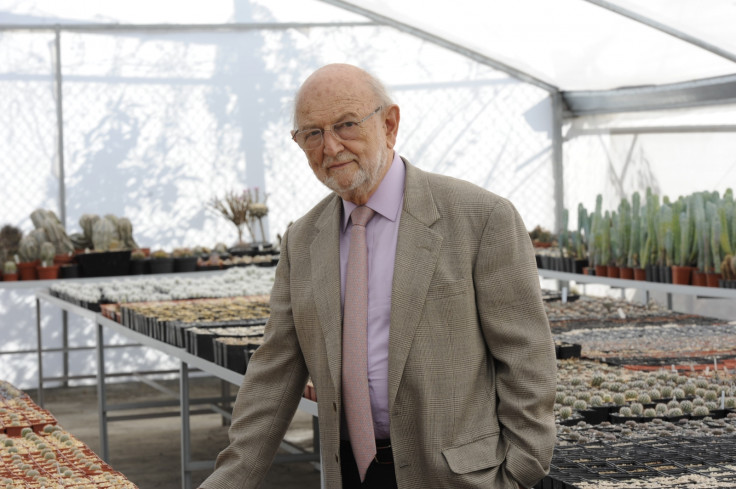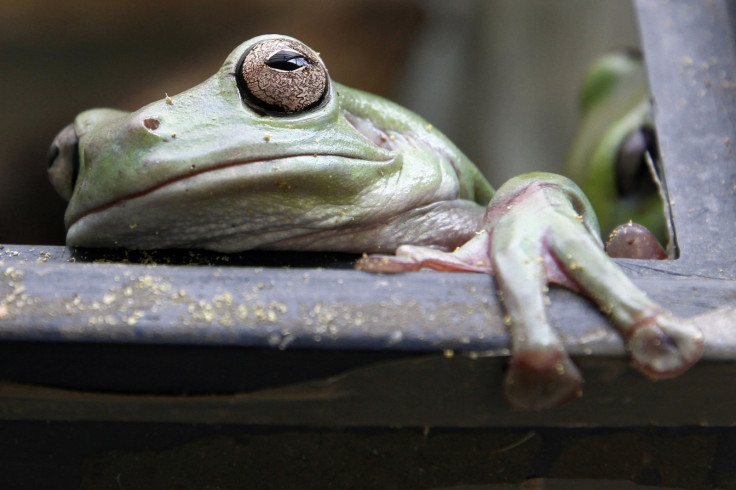The Mexican environmental scientist receiving an award right on Trump's doorstep
Professor José Sarukhán will collect his Tyler Prize at a ceremony near the White House.

On Thursday night (4 May), minutes down the road from the White House, a driving force of scientific understanding and action in Mexico is to be awarded the prestigious 2017 Tyler Prize for Environmental Achievement.
So close to a government that seems driven against environmental science – and Mexicans – he's not taking it quietly.
Professor José Sarukhán is largely being lauded for his work in establishing CONABIO – the National Commission for the Knowledge and Use of Biodiversity – a federal institution that brings together work on Mexico's varied ecosystems and helps better inform government policy and society as a whole.
Getting CONABIO off the ground was fairly coincidental, Sarukhán told IBTimes UK, "but I think it was a happy coincidence."
In the early 1990s, Sarukhán was president of the National University of Mexico when he received a call from then Mexican President Carlos Salinas de Gortari asking what the country could take to the UN Earth Summit, taking place in Rio. Sarukhán saw the opportunity.
He suggested an organisation that could bring together the information already being gathered in Mexico but one that was part of the government so it could "really advise" and inform policy. It would also be an open, free source of information. "I think it caught his imagination," Sarukhán said.
"Few scientists could convince a president to find budget for a federal level conservation agency but Sarukhán did," Tyler Prize executive chair Julia Marton-Lefèvre said, "and because of that, Mexico's forests now have an institutional watchdog actively protecting their biodiversity."
One of the most valuable things CONABIO has been able to do, Sarukhán told IBTimes UK, was to "act as a bridge between academia, government and society" – something that led to a more informed society and government, and therefore, better policy.
"Not everyone studies ecology or biology or geophysics or chemistry," Sarukhán said. "You need to provide this information in such a way that people are aware and understand... the problems that we are facing and that we are generating."
With the noted rise of populism around the world, populations seem more and more inclined to turn away from academic thought and recommendations and opt for emotive, reactionary responses instead. As former UK Education Secretary Michael Gove memorably said during the Brexit campaign: "People in this country have had enough of experts."
There is some reason people view academics as elitists, Sarukhan said, "many academics don't take the trouble... to convey to people the results of our works and research".
"They can do their basic fundamental work in science as seriously and dilligently as required but I think many people lose the sense that we belong to society, wherever we are, in many cases... we are doing our job with public funds and therefore we need to somehow share with the public some of the things we do.
"As a community of science, we have a responsibility to connect with people, to transmit what we are doing."

But along with academics understanding a societal responsibility, education needs to play a key role. Nothing in the way we are educated, Sarukhán says, engages with the idea that we are part of nature.
"We share genes with almost every single living being, with some of them very closely, like the chimpanzee, and we ought to have a different vision of our place in this planet." This doesn't mean ignoring humanity's central role, there will also be a position for anthropocentrism, Sarukhán says, but we must understand our "place of responsibility within the framework of nature".
"If we damage the matrix of nature, we are damaging our future," he explained.
© Copyright IBTimes 2025. All rights reserved.






















